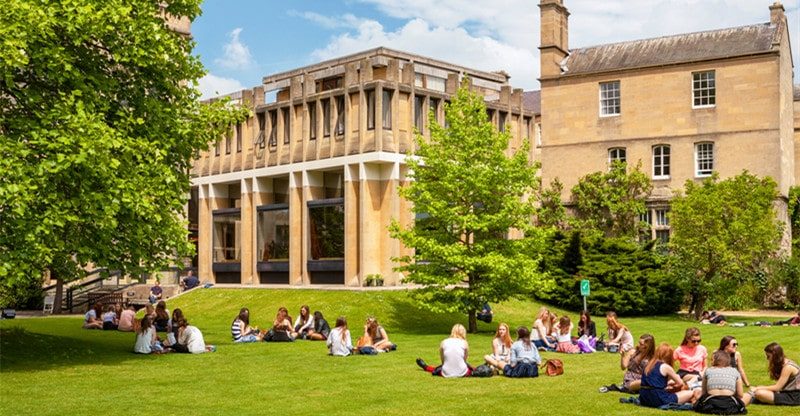How to Study at the World’s Top Universities Next Summer
Studying at one of the world’s top universities can open up doors and lead to opportunities that will benefit you for the rest of your life. The prestige and academic rigour of institutions such as Oxford, Cambridge, MIT, and Harvard are well known amongst employers, and a degree from such universities will make you stand out from the crowd.
A recent study found that the average graduate salary from UK universities within five years of graduating is £24,000. Oxford graduates earn 45 per cent more than this, with an average graduate salary of £34,802. However, competition is of course fierce. To even get an offer or an interview from a top university is notoriously difficult so you have to be very well prepared and savvy with your approach.
Acceptance rates at the University of Oxford are as low as 16.9% and at Cambridge, they are 24.2%. By comparison, acceptance rates at the Universities of Bristol and Durham, both highly prestigious UK institutions, are 74.9% and 80.4% respectively. With Bristol and Durham frequently featuring highly on lists of the world’s top universities, it goes to show that Oxford and Cambridge along with several US Ivy League universities are still in a league of their own.
So what can you do to increase your chances of getting a place at one of the world’s very top universities? We are going to take a look at a few tips to stand you in good stead in your application.
How do you get into one of the world’s top universities?
To get into a top academic institution you need high grades, focus, and enthusiasm for your subject of choice. You normally get five choices in your university application and if you want to apply for the top universities you should aim to apply for two or a maximum of three, and then have a couple of backup options.
Getting into one of the world’s top universities is hard and you will need to ensure you stand out at every possible opportunity. As well as achieving the top grades that fulfil the university’s entry requirements, you will also need a killer personal statement, a well-prepared interview technique, and interests and experiences that demonstrate your passion for learning and exploring the world through knowledge.
Choosing the right university
When it comes to choosing universities to apply for, much of your decision will be based on what subject you choose to pursue for your undergraduate degree. Some universities are better known for teaching social sciences, arts, or humanities subjects, whilst others are known for their STEM departments.
The top institutions will all be excellent in most fields and will have high-quality teaching in every department. However, certain universities have especially prestigious academic faculties led by world-leading academics in the field.
Use a university guide to keep up to date with which universities have the best departments for your subject of choice. While university guides can slightly differ in their rankings, they should give you a clear idea as to which places are currently deemed to be amongst the best in the country and even the world.
Your decision for choosing universities should also be based on the town or city in which it is situated and what the student life is like in the area. For example, UCL, the LSE, and Imperial College London are all London-based universities that compete with Oxford and Cambridge at the top end of tables.
However, many people would not want to study in London as they may think it too big or expensive. Alternatively, others may not want to be in Oxford or Cambridge as they may perceive them as too quiet and small.
You may struggle to find a university with a defined campus in bigger cities like London or Manchester, whereas in smaller places, universities are more likely to be campus-based. For prospective medical students, it will be important to research the hospitals that are local to the university.
If you are unsure about a certain city, then why not spend some time there? You can partake in summer schools to give you a taste of what it’s like living and learning at one of the most famous universities in the world. Some universities may also offer an online summer school via their virtual learning environment. These schools offer a range of courses that will give you a sense of the level at which you will be working when you enrol full time onto a degree.
There is also the option to study abroad. Many of the world’s top universities are based in the US. The tuition fees in America are very high and often leave students with huge debts when they graduate, but there are many international scholarships and academic beneficiaries that are available for prospective international students in all subject areas.
Or, you may want to study in an EU country. European countries generally have much lower fees than the UK and the US and many of the top institutions in places like Holland, France, and Germany are amongst the best universities in the world.
Writing your personal statement
Once you have settled on an academic subject and have picked one, two, or maybe three top universities to apply for, you then need to write a personal statement to send off with your application.
Your personal statement is your first opportunity to stand out from the crowd. There will be hundreds of prospective students applying with top high school grades, and you should see this as a chance to demonstrate what it is that makes you a more interesting and interested candidate than the rest.
Your personal statement can usually be no more than 4,000 characters long, and while there is no demanded structure or content, you can use the following as a guide to help you when it comes to writing yours.
• Begin by talking about why you are interested in your subject of choice. If you can, try and make this personal to you. What is it about you or your life that has set your interest in the Arts, Maths, or Sciences?
• Then you can move on to your deeper understanding of the subject. What have you learnt from your studies at school or college? Is there anything you have learnt from your own personal research? Or are there books and articles you have read or films you have seen that have furthered your knowledge and interest?
• Next, talk about you. What are your personal interests and passions in life? Do you have any hobbies, play sports, or subscribe to any magazines or websites? Have you ever won an award for something you’ve done or been mentioned in a local newspaper? Or maybe you have lived in a different country or speak another language? This section is your chance to let the reader know exactly who you are and what you might be able to bring to the university outside of academic excellence.
• Finally, you should end by explaining what it is you are looking forward to in your studies and how continuing to pursue knowledge in this area will keep you engaged and intrigued for the three years of university.
You should aim for the tone in your personal statement to be enthusiastic and individual, whilst being careful not to be too informal. Think carefully about any quotes or jokes you may put in as some readers might be less keen than others.
Preparing for an interview
If you have been given an offer by a top university, the next stage in the application process will be an interview with a course tutor. Many prospective students find this stage to be the most daunting, but with the right preparation, the interview doesn’t have to be anything to fear.
There is no formula for how to do a good interview, but most tutors will be looking for enthusiasm, a good attitude to learning, and someone comfortable with considering new ideas.
Here are some tips to ensure that you do the best job you can:
• Before your interview, make sure you know exactly when and where you are going. There is nothing worse than turning up late or not at all. Arrive as early as possible and find out exactly where you need to be and when. Then you can explore the local area and get to know your potential future home.
• Revise your subject. You don’t need to revise as if for an exam, but have a browse and see if there are any recent developments or topical issues that relate to your studies. That way you will have something current to talk about and you will show how engaged you are with the subject.
• Practice if you can. Some schools and colleges will have the facilities for you to practice mock interviews with a teacher or careers officer. If your’s doesn’t, ask your head of year to set one up with an external tutor for you, they should be happy to oblige.
• Dress formally on the interview day. Don’t overdo it, but it’s important that you show professionalism and that you are there to take it seriously.
• It’s okay to get lost or confused in the interview! They are trying to challenge you and see your response to difficult questioning. If you get stuck, ask them to repeat or rephrase their question and make an attempt to answer what you can.
• Ask questions of them as well. Try to think of something interesting to ask your interviewer. You should be told in advance who is interviewing you, do your research and look them up on the university website. See if you have anything you would be interested in hearing from them specifically.
• Once the interview is over, make notes on anything you found difficult. Then, if you have any other interviews lined up, you can make sure you are prepared.



